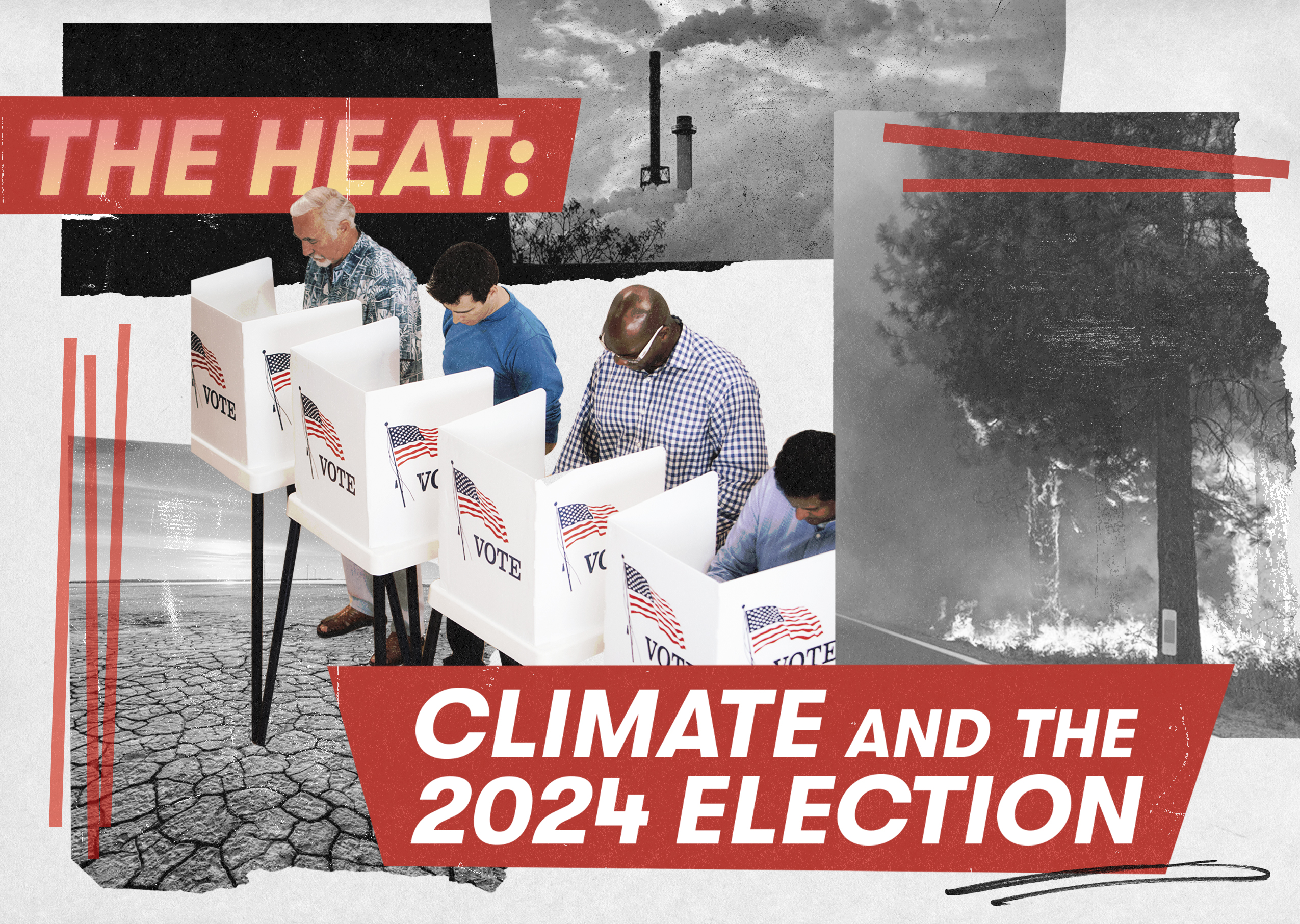California Uncovered
700,000 Undocumented Californians Recently Became Eligible for Medi-Cal. Many May Be Afraid to Sign Up.
Advocates say outreach is needed to ensure deportation fears do not stop immigrants from applying.

Perla Lopez, 35, works at St. John’s Community Health, a non-profit community health clinic in South Los Angeles. There, she helps patients, many of whom are undocumented immigrants, fill out applications for Medi-Cal, California’s Medicaid program. Since 2016, California has opened the program to undocumented residents, starting with children, then 19- to 25-year-olds, followed by adults 50 and older. In January, undocumented adults between 26 and 49 became eligible.
But state officials and health advocates worry that many of the more than 700,000 newly eligible residents may not enroll, either because they are not sure they would be eligible or even that drawing attention to themselves could lead to deportation.
Lopez’s job is to reassure undocumented residents that it is safe to receive Medi-Cal.
Join our email list to get the stories that mainstream news is overlooking.
Sign up for Capital & Main’s newsletter.
Like the people she helps, Lopez recalls years of anxiety and fears of deportation and family separation because her family is undocumented. Enrolling in health care and exposing their immigration status seemed a greater risk than the health consequence of not seeing doctors.
For Lopez’s mother, that meant no regular checkups and tests for diabetes, which led to emergency room visits. Lopez’s brother, half-blind with cataracts and considered legally blind, went without glasses for years.
Lopez is now a recipient of the Deferred Action for Childhood Arrivals program, a special legal status for undocumented people who entered the United States as children. Her mother and brother are eligible for Medi-Cal under a recent California law. And their stories help Lopez earn the trust of undocumented people like her and enroll them in Medi-Cal.
“As soon as I mention I’m from Mexico, from Puebla, that I’m not from here, they get more comfortable,” she said.
Lopez, health officials, researchers and government agencies anticipate an influx of new patients this year. On January 1, low-income, undocumented immigrants in California between the ages of 26 and 49 became eligible for Medi-Cal. Researchers at UC Berkeley Labor Center estimate that 710,000 people are eligible, filling in the final gap in health care for the undocumented, low income-earner community.
Yet undocumented immigrants are reluctant to seek public health care for fear of jeopardizing residency and citizenship and even risking deportation, according to the University of California, Los Angeles, Latino Policy & Politics Institute. The same study recommended that the 2024 Medi-Cal expansion “should include more persuasive ways of assuring potential enrollees” that their personal data would be confidential, and that the benefits of Medi-Cal coverage outweighed the health risks of being uninsured.
Groups like California Immigrant Policy Center are investing in trusted community members to have conversations in low-income undocumented communities and carry the message of health care eligibility.
“In low-income communities of color, trusted messengers are community members, not government agencies,” said Manuel Pastor, a sociology professor and director of the Equity Research Institute at the University of Southern California. Pastor said public health messaging (radio, television and billboard advertisements) should be coupled with door-to-door outreach — familiar faces knocking on doors and speaking the language of those who qualify — and word of mouth within the community.
Health Services Research, a peer-reviewed health care journal, two years ago warned about the same thing, saying policymakers needed to consider how fears about immigration status could deter Medi-Cal enrollment and should deploy trusted messengers to help immigrant families “regain trust in the health care system.”
Lopez’s work is funded through the BAILA Network, a Los Angeles-based coalition of attorneys, health care providers, community organizers and funders who came together during the COVID-19 pandemic to ensure that undocumented essential workers had access to health care and support. The BAILA Network was specifically formed to help undocumented immigrants overcome barriers like fears of deportation, losing residency and jeopardizing citizenship as well as the stigma of receiving social services. A 2021 Urban Institute study found that three in 10 adults in eligible low-income immigrant families avoided public benefits for these reasons.
Lopez estimates that her clinic sees about 120 people daily. Three days a week, Lopez said, she and four coworkers extend their 8 a.m.-to-5 p.m. workday by 90 minutes to accommodate their patients, who will wait 30 minutes to an hour to see them. Conversations with patients are often identical.
“They say, ‘I’m here to apply for Medi-Cal,’” Lopez explained during her lunch break. “Most of them don’t know what that is; they just know to apply.”
Adults between 26 and 49 years of age are the last segment of the state’s low-income and undocumented population to receive Medi-Cal through the expansion for undocumented residents. In 2016, undocumented children became eligible. Four years later, in 2020, young adults between the ages of 19 and 25 became eligible for coverage. In 2022, adults over the age of 50 became eligible. Lopez signed her mother up for the Medi-Cal extension. The family has done the same for her brother since he became eligible in January.
“He might need surgery; we don’t even know,” Lopez said.
Lopez shares this information with patients she sees — undocumented people who may be eligible for Medi-Cal.
Researchers estimate there are 2.2 million undocumented people in California. There may be 520,000 people who earn too much to qualify for Medi-Cal but don’t have employer-provided health care, said Laurel Lucia, the health care program director at the UC Berkeley Labor Center.
California is the only state to offer all low-income undocumented residents health care. Through the 2010 Affordable Care Act, more than half of previously uninsured Californians got health coverage. However, undocumented immigrants were excluded.
This left then-California Gov. Jerry Brown as well as health care and immigrant-rights advocates to figure out how to bring undocumented people into the fold. Pastor said there was first a simple question of math. “It’s partially what can you afford?” Pastor said. “It may have been a morally correct jump, but can you afford it?”
So, rather than offer coverage to all eligible undocumented people, California’s program was rolled out in stages.
“The changing nature of the undocumented population goes to support the costs,” Pastor explained.
There has been a decline in the number of foreign-born Californians, and about two-thirds of the state’s undocumented population have been in the country for more than 10 years. Many immigrant households are mixed status, meaning there may be U.S.-born children who are citizens as well as green-card holders in the house along with undocumented family members.
There is also the public health benefit to expanding health care coverage. In the past, undocumented people were limited to emergency room visits, pregnancy care and school-related coverage for children.
Pastor said doctors and nurses “don’t want to deliver regular medicine in the emergency room instead of a clinic, but that’s what happens when you exclude people.” The expansion to provide health care for undocumented people, considering recent anti-immigrant political rhetoric and legislation, is remarkable and should be celebrated, Pastor said. In 2019, a federal rule change threatened to make many immigrants ineligible for public assistance, including Medi-Cal. Though the change was reversed in 2022, many people remain confused.
Because of that confusion, “now you have to convince undocumented people to come forward,” Pastor said.
That’s where grant funding for counselors like Lopez helps. But in her South L.A. clinic, Lopez is one of only five people dedicated to enrolling undocumented low-income earners in Medi-Cal. Lopez said her colleagues must sometimes juggle two or three patients at a time. She said the grant funding for her position is ending soon, but she is able to stay permanently with the clinic. For this, she is grateful. “There needs to be more outreach about medical expansion,” Lopez said. “The community needs to know.”
Copyright 2024 Capital & Main
-

 Extreme WealthApril 2, 2024
Extreme WealthApril 2, 2024Extreme Wealth Is on the Ballot This Year — Will Americans Vote to Tax the Rich?
-

 Latest NewsApril 17, 2024
Latest NewsApril 17, 2024Despite Promises of Transparency, California Justice Department Keeps Probe into L.A. County Sheriff’s Department Under Wraps
-

 The Heat 2024March 19, 2024
The Heat 2024March 19, 2024In Deep Red Utah, Climate Concerns Are Now Motivating Candidates
-

 Latest NewsApril 3, 2024
Latest NewsApril 3, 2024Tried as an Adult at 16: California’s Laws Have Changed but Angelo Vasquez’s Sentence Has Not
-

 Latest NewsMarch 20, 2024
Latest NewsMarch 20, 2024‘Every Day the Ocean Is Eating Away at the Land’
-

 State of InequalityApril 4, 2024
State of InequalityApril 4, 2024No, the New Minimum Wage Won’t Wreck the Fast Food Industry or the Economy
-

 State of InequalityMarch 21, 2024
State of InequalityMarch 21, 2024Nurses Union Says State Watchdog Does Not Adequately Investigate Staffing Crisis
-

 Latest NewsApril 5, 2024
Latest NewsApril 5, 2024Economist Michael Reich on Why California Fast-Food Wages Can Rise Without Job Losses and Higher Prices




















